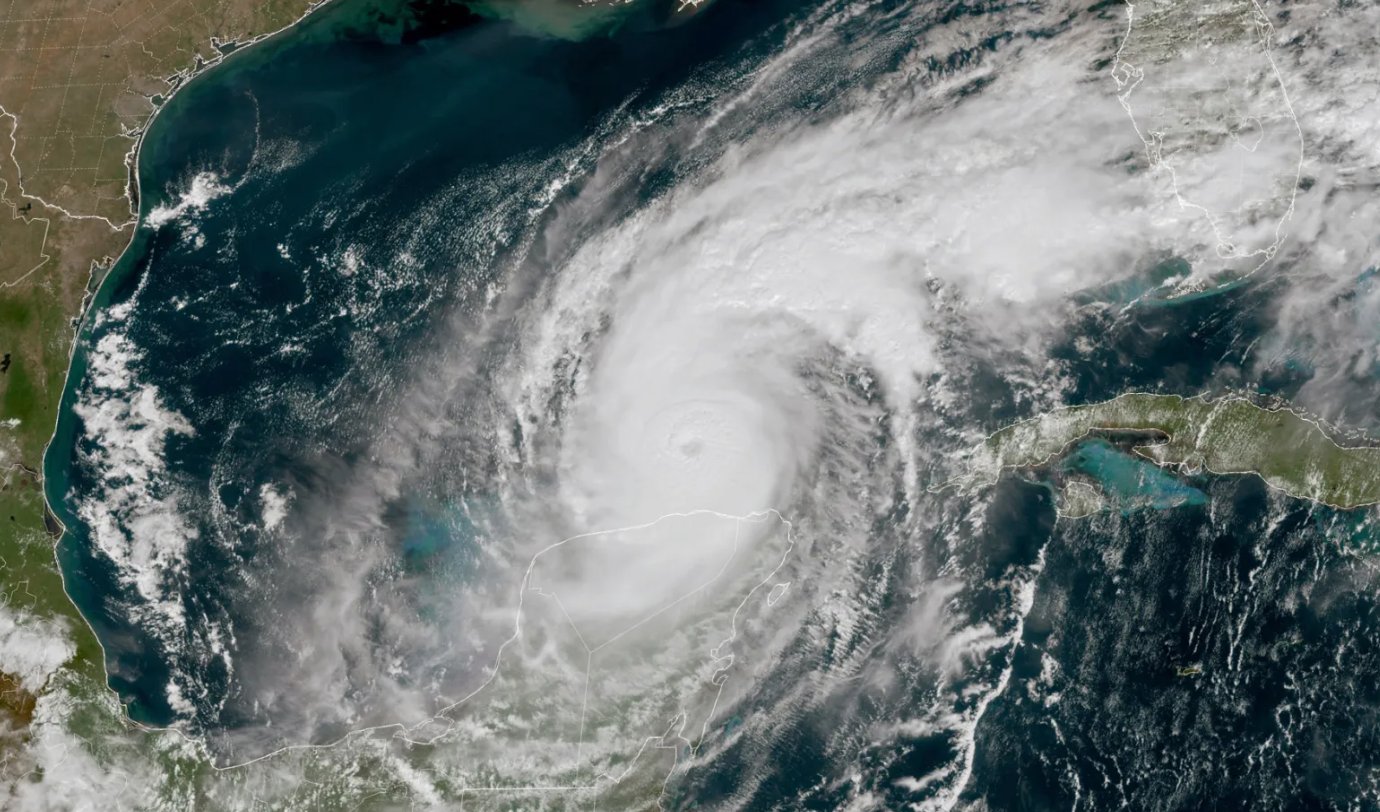by Paul Homewood
16 October 2024 9:00 AM
A recent article in UnHerd by John Rapley, in the aftermath of Hurricane Milton, claims that climate change has intensified extreme weather and increased the economic cost of weather disasters.
To quote:
The American economy is ill-prepared for the rising frequency and intensity of such compound weather events. Of the 10 costliest extreme weather events to have ever happened in the U.S., six occurred in the last decade, the result of climate change intensifying weather patterns.
Is there any of evidence of this assertion though?
Far from Hurricane Milton being the storm of the century, as widely alleged in the media, it was no more than a middling Cat 3 storm, a run of the mill event as far as Florida is concerned. In terms of intensity, it ranked only 75th strongest in U.S. recorded history.
It was the third hurricane to hit Florida this year, following Debby and Helene, but there is nothing unusual about this. Moreover, the official record dating back to 1851 provides no evidence of hurricanes becoming more frequent:

Also, the U.S. National Oceanic & Atmospheric Administration (NOAA) concluded in its annual review of hurricanes earlier this year that “there is no strong evidence of century scale increasing trends in U.S. landfalling hurricanes or major hurricanes“.
So, if hurricanes are not getting more frequent or powerful, why are economic losses increasing?
Simply because as a society and as individuals, we have more stuff to lose. The population of Florida has exploded over the years, particularly in coastal areas, which are most vulnerable to hurricanes. That means more homes and infrastructure.
And as they become wealthier, people own more assets. They no longer live in wooden cabins, but luxury homes. They own cars, the latest gadgets and designer clothes. On top of that, rising real wages mean that repairing the damage from a hurricane will now cost considerably more than in the past.
A weather disaster that may have cost $500 million 30 years ago could cost a billion now, even when the effects of inflation are allowed for.
Professor Roger Pielke Jr. is one of the leading experts on the cost of disasters, having studied the topic for 30 years or more. A recent peer-reviewed study of his found that when changes in asset values are factored in, what he refers to as “normalised” values, there is no long-term trend in losses from Atlantic hurricanes hitting the U.S.
Katrina stands out as the costliest in recent times, but even that did not compare with the 1926 ‘Miami’ Hurricane, which effectively wiped the city off the map:

Pielke also looked at losses from floods and tornadoes in the U.S., and both show a marked decline in losses.
Another Pielke study analysed global weather losses, of which he reckons 60% are accounted for by U.S. hurricanes! When measured as a percentage of GDP, the long-term trend is down:

Rapley makes the mistake of relying on NOAA’s Billion Dollar Disaster Database, which does not take account of increasing wealth and GDP. Instead, economic losses are only adjusted for CPI.
Indeed, another peer-reviewed paper by Pielke this year has described the NOAA database as flawed and misleading.
America has always been ravaged by hurricanes and other weather disasters. But it now has the resources, technology and money to bounce back from them.
A nation that had to deal with the Miami hurricane or Katrina can surely cope with Milton.





Recommended Comments
Join the conversation
You can post now and register later. If you have an account, sign in now to post with your account.
Note: Your post will require moderator approval before it will be visible.